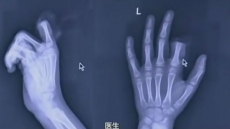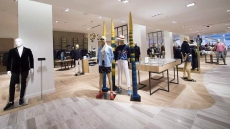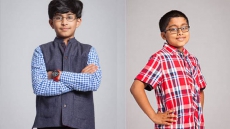HALIFAX — You may work for one. You may even live with one.
But if you don't recognize the dark personality traits of the narcissistic perfectionist, you could be putting your mental and physical health at risk, says clinical psychologist Simon Sherry.
The professor at Dalhousie University's Department of Psychology and Neuroscience has produced new, empirical research that reveals for the first time the ugly, toxic result when narcissism and perfectionism combine in the same person.
"Narcissistic perfectionism is destructive, and it tends to be particularly destructive to people who find themselves in an entrapped sort of relationship," Sherry says. "It's something that's corrosive to other people."
However, these individuals can be difficult to recognize. That's why Sherry has put together a checklist of traits to watch for:
1. Hypercriticism
The narcissistic perfectionist (NP) is quick to pounce on the mistakes of others, even minor blunders. Errors provoke frustration for the NP, who appears chronically dissatisfied with others' performance.
They routinely point out other people's flaws.
"The criticism is ceaseless," Sherry says. "And if you fall short of their lofty standards, they're likely to lash out at you in a harsh way."
2. Other-oriented perfectionism
For most of us, perfectionism means setting consistently high standards for ourselves. Not so for the NP.
They demand perfection from others: friends, family, co-workers and even their own children. There's an expectation that other people should do things as flawlessly as they do.
This trait is revealed through exacting verbal commands. If your boss is an NP, you'll be subjected to the strain of unrelenting, unrealistic expectations.
3. Entitlement
The NP always expects special treatment. They believe they are deserving of others' admiration and respect, given their self-described brilliance and unique status.
The rules of common courtesy, especially when it comes to waiting in line or getting stuck in traffic, don't apply to them.
As well, others are expected to bend the rules for them.
And the NP often feels let down because others are not giving them the reverence they deserve.
4. Grandiosity
The prototypical NP believes they are very important and may actually think they are perfect, intellectually and physically — regardless of the truth.
The NP believes they are the best at what they do, superior in every way.
"It's self-esteem on steroids," says Sherry.
While this trait may seem like the easiest to spot, Sherry says "covert" NPs can hide their grandiosity, relying on a secret, internal monologue.
---
Steve Jobs, the late co-founder of Apple Inc., is considered an archetypal NP.
Citing Walter Isaacson's 2011 biography of the famed entrepreneur, Sherry says Jobs consistently displayed all four traits throughout his life.
In the book, Jobs' stellar accomplishments are explored against a backdrop of personal strife.
"He's brilliant and may be a creative genius, but at the same time he was relentlessly in conflict with other people," Sherry says.
"At the end, he had more than 60 nurses before he found two he could tolerate, and he was rejecting life-saving equipment because he found its design inelegant."
While Jobs may be the quintessential NP, his incredible business success sets him apart from the typical narcissistic perfectionists Sherry has treated over the years.
"Someone who has these traits without the corresponding accomplishments has enormous difficulty in their day-to-day life," he says, adding that treatment can be difficult. "People are more willing to give people like Steve Jobs a free pass."
More importantly, Sherry believes the prevalence of narcissistic perfectionism may be on the rise, given the trend toward helicopter parenting and what he calls "an age of entitlement."
"That's probably owing to parenting practices that put children on a pedestal, creating an unrealistic sense of uniqueness and self-importance," he says.
"And there seems to be undue emphasis on convincing children they're unique and important, to the neglect of encouraging other attributes, like compassion or self-discipline."
The proliferation of social media has also created an unrealistic sense that everyone is important and has something special to say, he says.
Sherry's findings were based on two studies, one of which included diaries written by about 150 undergraduates. The students described their social experiences for 28 days, and their responses were rated on a continuum of narcissistic and perfectionist traits.
The study also relied on reports from those close to the test subjects, which helped eliminate self-serving biases.
Sherry says the empirical research is important because it will form the foundation for new assessment tools and intervention strategies for treatment.
"At this point, our treatment options are limited and the prognosis looks bleak," he says. "We're taking meaningful first steps in that direction."





